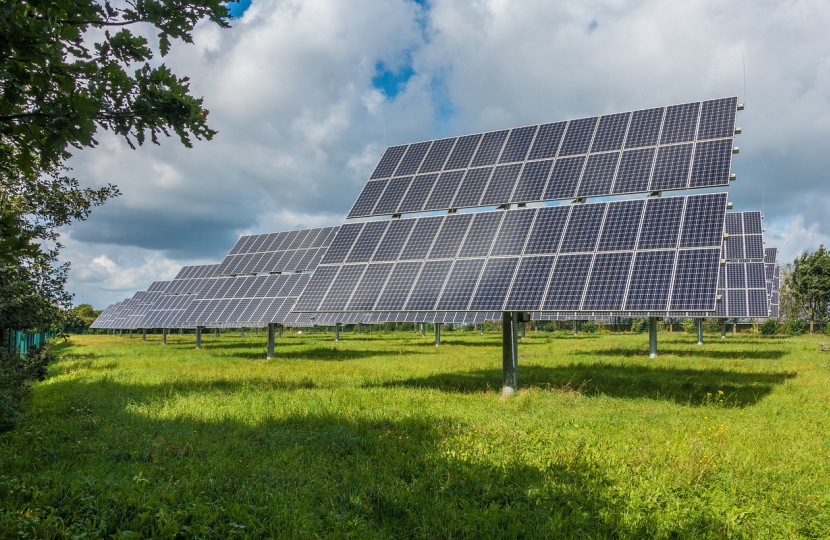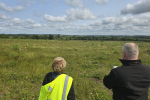
Richard Fuller MP has submitted evidence to the Energy Security and Net Zero Committee’s inquiry into the Government’s draft National Policy Statements (NPS) for energy infrastructure. The inquiry seeks views on how national planning policy can support the UK’s energy goals while respecting local communities and the environment.
In his submission, Richard focused on the proposed revisions to the National Policy Statement for Renewable Energy Infrastructure (EN-3), particularly the provisions relating to ground-mounted solar developments. Drawing on his longstanding campaign to protect agricultural land and rural communities from inappropriate solar farm developments, Richard raised concerns about the current direction of policy.
Although solar has a role in energy generation, he highlighted that the UK ranks among the lowest globally for solar power potential, yet the draft policy encourages land-intensive, ground-mounted solar schemes. In North Bedfordshire alone, five such proposals are already underway, driven by proximity to grid infrastructure. Richard warned that this clustering effect risks damaging the countryside, reducing agricultural land availability, and undermining rural heritage.
Richard’s submission calls for a more balanced and strategic approach to solar energy development, including:
- Greater emphasis on rooftop solar as a first option.
- A clear presumption against the use of Best and Most Versatile (BMV) agricultural land.
- Stronger safeguards and enforceable thresholds to protect food security and rural livelihoods.
- A statutory requirement for developers to prioritise brownfield, industrial, and lower-grade agricultural land before using BMV land.
- Measures to prevent the over-concentration and clustering of solar farms in specific regions.
Richard said:
We must not sacrifice our best farmland and rural character in pursuit of poorly planned solar farms. The UK's energy policies must be environmentally responsible, economically sound, and locally appropriate. I will continue to stand up for North Bedfordshire and advocate for policies that reflect these values.
You can read more about Richard’s position on solar farms at www.richardfuller.co.uk/campaigns/solar-farms and follow the progress of the Committee’s inquiry on Parliament’s website.
Last week Richard's colleague, Dr Caroline Johnson, secured a backbench debate on solar farms in the House of Commons, which was well attended with contributions from MP from all parties. Unfortunately Richard was unable to attend.
Commenting, Richard said:
It is noticeable that there was yet another debate in Parliament last week questioning the current direction of travel on solar.
Few disagree that solar has a role to play in the overall portfolio of renewable energy, but increasingly concerns are being raised over the scale, the suitability, the funding and the placement of solar farms:
- The recently published World Bank report into solar energy highlights the UK as second bottom of the list of all countries most suited to solar energy production given our geographical latitude and climate.
- The UK is an outlier in progressing predominantly ground based solar whereas the rest of the developed world all favour rooftop.
- The linkage of electricity pricing to global gas prices prohibits solar being the low cost solution that many envisage.
- Recent years have shown the critical importance of food security and we risk irreparably compromising our capacity through carpeting vast swathes of farmland with solar panels.
I broadly welcome the government's decision to mandate panels on the roofs of new build housing but will continue to push for a halt on massive ground installations and for a far greater focus on the roofs of warehouses, supermarkets and car parks.


